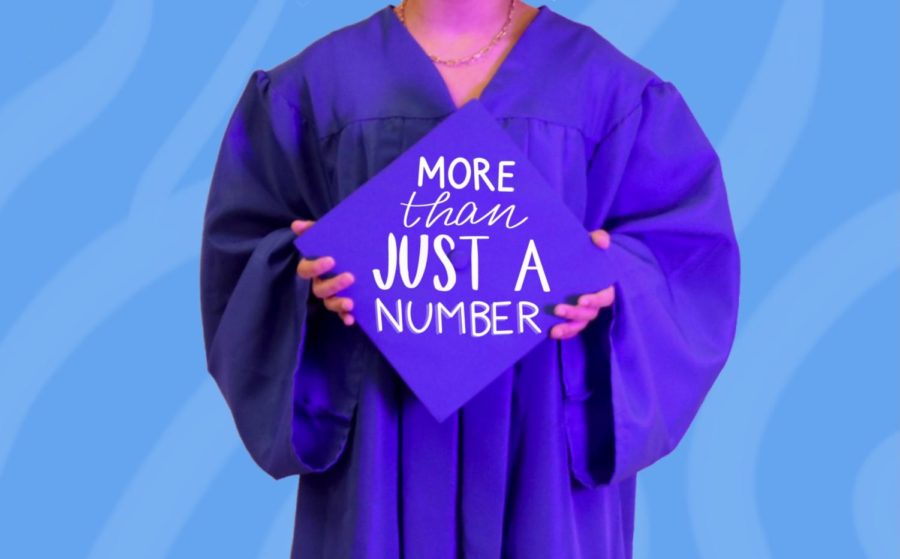Opinion: More than just a number
“The tradition of calling the top 10% in rank order is outdated and fails to serve its purpose of commending students for their academic accomplishments.”
Having grown up attending the graduation ceremonies of my family and peers, I have dreamed of the day I walk across the stage myself. Graduation is supposed to be a memorable moment when my classmates and I celebrate the milestone of completing high school together. But after learning that the top 10% of our class would have our names called by rank order, I have started to dread this supposedly joyous ceremony. The tradition of calling the top 10% in rank order is outdated and fails to serve its purpose of commending students for their academic accomplishments.
Despite maintaining a good academic record, I have never held positive views toward the rank system in general. In fact, one of my biggest regrets in high school is letting it decide what classes to take. The class rank system pushes — and almost forces — many students to have a difficult course load, all while maintaining high grades. It may be easy to get caught up in grades, but the class rank system is almost predatory for insecure teens who are anxious about their future. This aspect destroyed my physical and mental health during my junior year. Several sleepless nights were spent studying for tests or finishing assignments, and I found myself burnt out and worrying about my rank every time transcripts updated. In addition, many of my peers found unconventional ways to get a good grade rather than letting their scores reflect their honest effort.
One thing I learned the hard way is that it hurts ourselves academically if we focus on the grade we receive instead of understanding the content. High school already has enough stressors on its own, so why are we making it harder by obsessing over a number that will not matter after graduating? If people value their class rank because of colleges, admissions officers understand that rank is not standardized: each school has its own academic rigor and factors that affect students’ rank. In addition, the number of people in our class has decreased, something which is beyond an individual’s control. Separating the class at graduation disregards the efforts of those who were once within the 10% but aren’t currently due to the smaller class size.
After several nine weeks, I learned to accept that my class rank is not a true reflection of who I am as a student. I believe this is why it’s one of those subjects students keep to themselves. It’s not common to casually share ranks openly, and I’m certainly not comfortable with it being known to the entire graduating class and their families. Besides, the graduation ceremony is meant to be a time to bring students together, but the tradition only divides our class. If the intended purpose of handing diplomas out to the top 10% first is to commend the students for their academic accomplishments, the administration should find an alternative way. Other schools outside the district offer a breakfast for students at the top of their class, where their families and teachers are invited to come celebrate; this would be much more memorable as everyone in the top 10%, regardless of rank, is able to celebrate the same way.
Being proud of our academic accomplishment is something that students, including myself, have to value on our own. It should not be dictated by a number that is subject to change every nine weeks. Every student that has survived their four years in high school has the right to walk across the stage, holding their head up high as they are called by name — not by a number.

Senior Yunseo Jo is a reporter and this is her first year on staff. She is a dog whisperer who enjoys reading and digital art.



